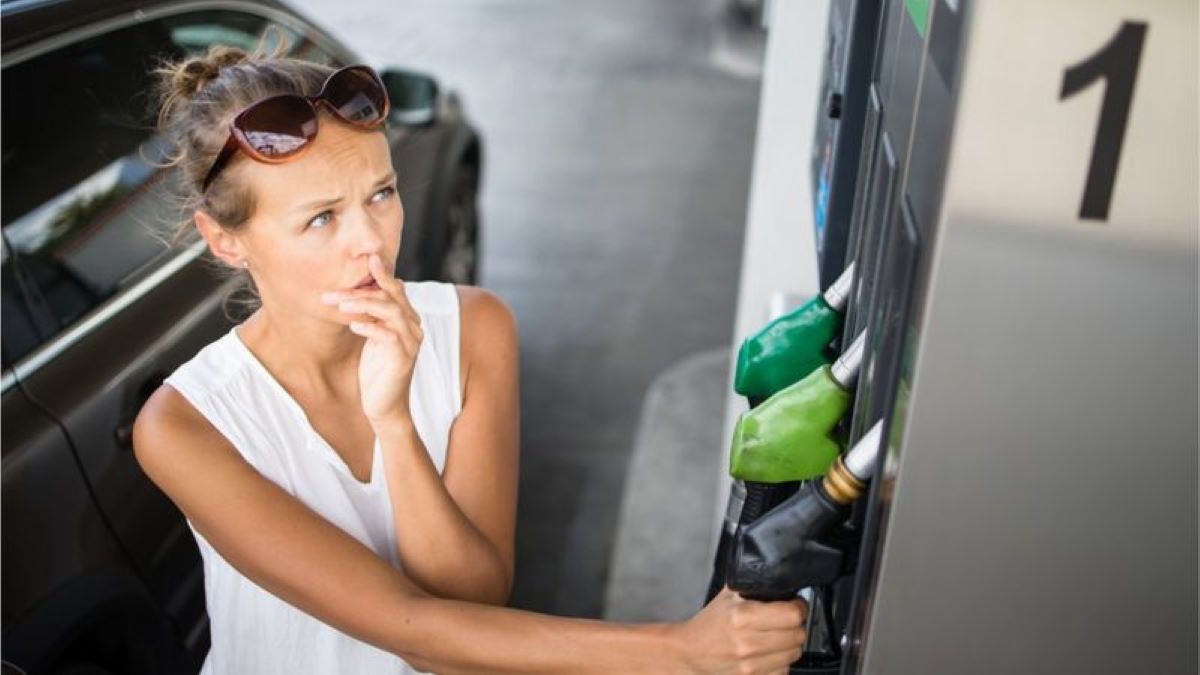Filling up a car is becoming more expensive as fuel prices are reaching all-time highs in many countries.
We’ve looked at five tricks drivers commonly use to save fuel. Which ones work and which ones are pure myths?
1) Is 90km/h the best speed to optimize fuel?
Driving at exactly 90km/h is considered by many drivers to be the most efficient way to optimize fuel.
However, there is no set ideal driving speed, according to the RAC automotive group.
The 90km/h myth, they say, arose from old fuel consumption tests, which were carried out at three speeds: in the city, at 90km/h and at 120km/h.
The most efficient of the three was 90km/h, leading many to believe that this was always the best speed.
However, depending on the type of car and its size, the RAC ensures that between 70 and 80km/h is more efficient.
2) Should I turn off the air conditioning?
If you’ve ever resisted the temptation to run the air conditioning on a hot summer day to save fuel, you did well.
Additional energy is needed to run a car’s air conditioning system, and turning it on can increase fuel consumption by up to 10% according to the AA.
The impact may be more noticeable on shorter trips. That’s because the air conditioner has to use more energy initially to lower the car’s interior temperature.
Opening the windows might be better, but this creates another problem called “dragging”. This is where the engine has to work the hardest to compensate for the air resistance created by open windows.
If you have to choose between the two, the best option will depend on speed. The air conditioning is probably better above 80km/h because the faster you drive, the greater the resistance caused by the open windows.


3) Does driving in neutral save fuel?
Coasting is when you drive with the car in neutral or with the clutch pedal depressed.
The AA automobile association does not recommend it. Not only could it be unsafe (because you couldn’t accelerate your way out of a sticky situation), but it’s unlikely to save you gas.
According to the AA, most cars have electric controls that cut off the fuel supply every time you lift your foot off the accelerator, so there’s nothing to be gained by coasting.
4) Does cruise control save fuel?
Cruise control, a device that keeps the car at a constant speed without having to use the accelerator pedal, is often considered a surefire way to save fuel by preventing unnecessary acceleration and harsh braking.
However, this may only be true when driving on the highway, since it is a constant flat surface.
On other types of roads you are more likely to encounter unevenness, so the cruise control will take time to adjust to the change in grade, consuming more fuel in the process.
Typically, you lift your foot off the accelerator as you start down a hill. But since cruise control can’t see what’s ahead, it spends more time using power, leading to worse fuel economy.


5) Does incorrect tire pressure consume more gasoline?
Underinflated tires consume more gasoline. The advice is to check your blood pressure regularly, especially before going on a long trip.
Your car manual will tell you what the correct pressure is, but you may need to increase it to the recommended maximum if you have multiple passengers and heavy luggage.
However, any additional weight will still use more fuel, so skip anything you don’t need.
Remember that you can receive notifications from BBC Mundo. Download the new version of our app and activate them so you don’t miss out on our best content.
- Do you already know our YouTube channel? Subscribe!
See original article on BBC
